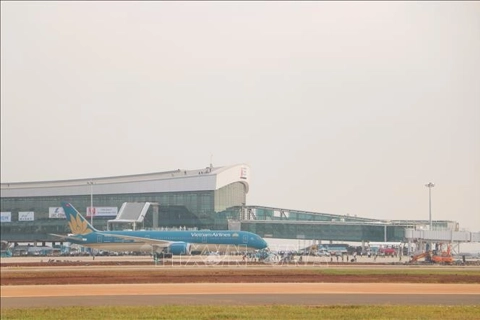Back to their roots: Why Vietnamese students are returning home after studying abroad?
What if the ultimate dream of studying abroad isn't about leaving for good, but about coming back home to a Vietnam that's rapidly catching up with the world?
Not so long ago, studying abroad was the ultimate dream - a coveted option that opened up a world of possibilities. Back then, Vietnam was still a developing country with little in the way of infrastructure and economic resources. It's no surprise that Vietnamese students were often in awe of the modernity and sophistication of life abroad. But now a big change is happening: instead of trying to stay abroad, many students are choosing to come back home. So what's changed?
In this edition of Words on the Street, we discuss a growing trend among Vietnamese students who choose to return home after studying abroad, as Vietnam's evolving job market and cultural landscape offer fresh options.
Picture this: a Vietnamese student lands in New York or London for the first time. Towering skyscrapers, sleek public transit, and magazine-worthy lifestyles—it’s easy to see why Vietnam felt worlds behind at the time. International brands were rare in Vietnam, so these students were completely mesmerized by the new experiences they encountered abroad.
I remember a friend who studied in Texas during high school. She wore everything her parents got her, dressed like a tomboy before she left. Makeup? Not even close. But within a month of arriving in the U.S., she was hooked - her wardrobe was completely revamped with new clothes, shoes, perfume, and makeup. That ABG (Asian Baby Girl) vibe stayed with her for years.
The narrative was similar for many millennials who studied abroad: families invested heavily in their education, only for them to return home and find that the job market wasn't exactly welcoming. Salaries in Vietnam were a far cry from what they were used to overseas, and many companies weren't eager to take on foreign graduates - fearing a cultural mismatch or having to pay them more than local hires. What's more, converting foreign qualifications to fit the local system was often a hassle, and some specialized certifications weren't even accepted by employers.
But today? It's a whole new ball game. Vietnam's job market, especially in Hanoi, has undergone dramatic changes. The rapid expansion of multinational companies in Vietnam has opened doors for graduates with international experience. Now, companies are actively looking for employees with overseas backgrounds, seeing them as a rare catch in the labor market.
Beyond foreign companies, many local businesses that deal with international clients or plan to expand abroad are also on the lookout for employees with strong language skills and cultural knowledge. It's no longer uncommon to find someone with a foreign education working in business or even government. Some companies, albeit unofficially, give hiring preference to candidates with overseas experience. With its thriving economy and position as the political capital, Hanoi is quickly rising to the top of the list for these returning grads. They're not only finding opportunities - they're in high demand.
It's not just the job prospects that have changed - the cultural landscape has changed as well. In the past, Vietnamese students often felt out of place when they went abroad. Asian services, from food to beauty treatments, were hard to come by, making life overseas feel like stepping into a different world.
But now Asian culture is having a moment, from food to fashion. Vietnamese, Korean, and Japanese restaurants are popping up everywhere, and Asian aesthetics are gaining popularity in Western countries. This cultural crossover has made it easier for Vietnamese students to maintain ties to their roots while living abroad. They no longer feel pressured to completely conform to Western standards and run the risk of losing touch with their own culture, which has given them confidence in who they are.
And back home in Hanoi? The city has evolved. Services once available only abroad - high-end Korean salons and hip eateries - are now available in Hanoi, often at a fraction of the cost. Returning home no longer feels like a step back, but rather a chance to reconnect with a dynamic, fast-changing homeland.
These days, students who study abroad have a routine: as soon as they’re back home for a break, they make appointments for haircuts, color treatments, skin care, dental work, and manicures, all before heading back overseas. I used to do the same thing. I’d let my hair grow long for two months before returning to Vietnam, and during my first week home, I’d squeeze in all my beauty appointments as quickly as possible.
Hanoi has become a global city, a place where young people with international backgrounds can find a sense of belonging and pursue successful careers. No longer overwhelmed by the rapid progress of the West, Vietnamese students return with a fresh perspective. They've seen the world, they're aware of the opportunities that await them back home, and they're proud of their culture.
Once just the capital, Hanoi is now a thriving hub of international exchange that blends tradition with modernity. For those looking for a meaningful connection between where they’ve been and where they’re headed, there’s no better place.












